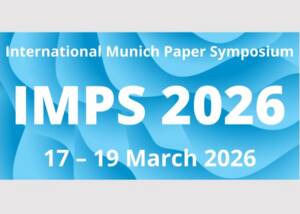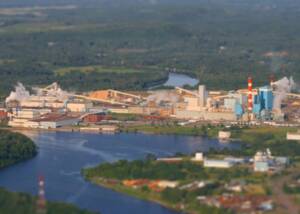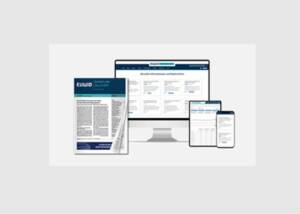Metsä Board's comparable operating result in 2020 was EUR 221 million
News General news
The coronavirus pandemic has increased demand for clean and safe packaging materials, particularly for end uses in the food and pharmaceutical industries. On the other hand, the pandemic has weakened demand for the packaging materials of luxury items and graphic end uses.

January–December 2020 (compared to 1–12/2019)
• Sales were EUR 1,889.5 million (1,931.8).
• Comparable operating result was EUR 221.2 million (184.4) or 11.7% (9.5%) of sales. Operating result was EUR 227.3 million (180.8).
• Comparable earnings per share were EUR 0.46 (0.41), and earnings per share were EUR 0.48 (0.41).
• Comparable return on capital employed was 12.2% (10.4%).
• Net cash flow from operations was EUR 307.7 million (200.5).
October–December 2020 (compared to 10–12/2019)
• Sales were EUR 473.1 million (478.4).
• Comparable operating result was EUR 64.5 million (39.1), or 13.6% (8.2%) of sales. Operating result was EUR 64.5 million (20.0).
• Comparable earnings per share were EUR 0.14 (0.09), and earnings per share were EUR 0.14 (0.05).
• Comparable return on capital employed was 14.3% (8.9%).
• Net cash flow from operations was EUR 81.0 million (89.6).
Impact of coronavirus pandemic on Metsä Board’s business operations
The coronavirus pandemic has increased demand for clean and safe packaging materials, particularly for end uses in the food and pharmaceutical industries. On the other hand, the pandemic has weakened demand for the packaging materials of luxury items and graphic end uses.
Metsä Board’s production and deliveries have not experienced any disruptions during the pandemic, and the annual maintenance shutdowns of the mills were carried out successfully. While no chains of coronavirus transmissions have occurred, the incidence of individual cases of infection has increased as the pandemic has progressed.
Metsä Board’s financial position is good. The maturity structure of the loans is healthy, and the company has adequate liquidity. Metsä Board’s paperboard product portfolio has responded well to changes in demand caused by the pandemic, and thus the cash flow, which has remained strong, supports financial headroom.
The company continues to employ substantial precautionary measures aiming to ensure the health of employees and the continuity of business operations and prevent the virus from spreading. Despite the precautionary measures, a prolonged pandemic could lead to disruptions in production and/or the supply chain. Furthermore, substantial weakening of the world economy attributable to the pandemic could also reduce demand for Metsä Board’s products and thereby have a negative impact on the company’s profitability.
Events in October–December 2020
• Demand for Metsä Board’s fresh fibre paperboards remained good, and particularly the market situation of white kraftliners strengthened towards the end of the year. The decline in paperboard delivery volumes was, as expected, mainly caused by the seasonally slower December.
• In China, demand for market pulp remained good and dollar-denominated prices continued to rise. The pulp market in Europe also picked up slightly.
• Metsä Board’s production volumes of white kraftliners and pulps were record high in October–December. Good material and production efficiency lowered production costs.
• Metsä Board announced that it would sell a 30% minority share of the Husum pulp mill to Norra Skog. The transaction was made on 4 January 2021, and it reduces Metsä Board’s net debt by approximately EUR 260 million. The arrangement improves wood handling at the Husum mill and allows the company to focus a significant portion of its development investments on paperboard.
• Metsä Board obtained an approval for an amendment to Husum’s environmental permit and made the final investment decision on the first phase of the pulp mill’s renewal, which includes a new recovery boiler and turbine. The total value of the investment is around EUR 320 million, and the estimated start-up is in the first half of 2022.
• In December, Metsä Board was again recognised for its climate work when the company was included on CDP’s Climate A and Water A lists for climate change mitigation and the sustainable use of water resources. In the sustainable use of forests, the company achieved grade A- from CDP’s forest programme.
Events after the review period
• The sale of a 30% share in the Husum pulp mill to Norra Skog was completed on 4 January 2021, and its impact will be included in Metsä Board’s financial reporting as of the interim report concerning January–March 2021. The transaction will decrease Metsä Board’s net debt by approximately EUR 260 million, and in addition it will reduce Metsä Board’s financial contribution in the second phase of the Husum pulp mill renewal by approximately EUR 100 million.
• Metsä Board announced on 22 January 2021, that it has started pre-engineering for increasing the annual production capacity of folding boxboard at the Husum mill in Sweden by approximately 200,000 tonnes. The pre-engineering phase includes also an evaluation of the mill’s port capacity for increased volumes of raw materials and finished goods. The readiness to make the final investment decision is expected to be achieved in the summer of 2021 and the ramp-up of the additional capacity would start in 2023.
• On 11 February 2021, Metsä Board’s associated company Metsä Fibre made an investment decision on the construction of a new bioproduct mill in Kemi, Finland.
• On 11 February 2021, Metsä Board made an investment decision on the development programme for its Kemi paperboard mill.
Board of Directors’ proposal for dividend and capital distribution
The Board of Directors proposes to the Annual General Meeting to be held on 25 March 2021 that a dividend of EUR 0.10 per share and a capital distribution of EUR 0.16 per share be paid for the 2020 financial period. The proposed dividend and capital distribution, totalling EUR 0.26 per share, corresponds to 54% of the result per share for 2020.
Near-term outlook
The duration of the coronavirus pandemic and the scope of its negative impact on the world economy and on Metsä Board’s business operations continue to be difficult to estimate.
Metsä Board’s paperboard deliveries in January–March 2021 are expected to grow from the delivery volumes of October–December 2020 (441,000 tonnes).
The prices of white kraftliner in local currencies are expected to increase slightly, while the prices of folding boxboard are expected to remain stable.
No significant annual maintenance shutdowns at mills are set to take place in January–March 2021.
Demand for long-fibre pulp will be supported by in-creased economic activity, particularly in Asia. Supply has recently reduced due to producers’ annual maintenance shutdowns, the production curtailments announced by some parties and a shortage of containers in the traffic between Europe and Asia. The improved market situation in Asia has reflected to Europe and market pulp prices are increasing.
Exchange rates, accounting for the effect of hedging, in January–March 2021 will have a negative impact on results compared to October–December 2020 and a negative impact on results compared to January–March 2020.
Energy costs are expected to increase in January–March. The other production costs of paperboard and pulp are expected to remain fairly stable.
Result guidance for January–March 2021
Metsä Board’s comparable operating result in January–March 2021 is expected to improve compared to October–December 2020.
Metsä Board’s CEO Mika Joukio:
“The fourth quarter of the year went according to our expectations and our comparable operating result was EUR 64.5 million (10–12/2019: 39.1). The lower production costs for the paperboard business and the in-creased delivery volumes of market pulp improved our profitability. Our financial position remained strong: at the end of the period, our interest-bearing net debt was at EUR 236 million and its ratio to comparable EBITDA was clearly below one.
In December, we announced to sell a 30% share of the Husum pulp mill to the Swedish forest owner cooperative Norra Skog. The arrangement made Metsä Board practically a net debt free company, which means that we are in an excellent position to expand our core business – sustainable, high-quality fresh fibre paperboard. Also in December, we made a final investment decision on the first phase of the renewal of the Husum pulp mill.
The coronavirus pandemic’s negative impact on our business remained smaller than expected throughout the year. Solid demand in food and pharmaceutical packaging, as well as in various packaging solutions in the retail sector, increased demand for our fresh fibre paperboards in our main markets. Our paperboard deliveries grew from the previous year and were 1,810,000 tonnes. Our growth continued, particularly in North America, where our sales are supported by competitive products, an efficient supply chain and superior customer service.
Our comparable operating result in 2020 improved by 20% from the previous year and was EUR 221.2 million. Our comparable return on capital employed, 12.2%, reached our long-term target level. Profitability improved due to lower production costs and a positive foreign exchange impact. Early in the year, our result was burdened by the paper industry strike that lasted more than two weeks. The strike concerned Metsä Board’s mills in Finland and all of the pulp mills of our associated company Metsä Fibre. Pulp’s overall impact on our operating result was neutral.
Our production and deliveries has not experienced any disruptions during the pandemic, and the annual maintenance shutdowns of the mills were carried out successfully. The production efficiency of our mills was at a high level in 2020 and we achieved new records in both paperboard and pulp production.
In the autumn, we opened a state-of-the-art Excellence Centre to accelerate paperboard and packaging innovations in cooperation with customers and technology partners all over the world. As part of Metsä Group, we also participate in large-scale collaborations which develop large-volume bioproducts with clearly lower carbon footprint than that of products currently on the market.
Our ambition is to be a forerunner in sustainability and we aim for entirely fossil free production and products by 2030. We received plenty of recognition for our sustainability this past year. Our recyclable paperboards made from renewable fresh fibres are ideal for sustainable packaging, which will also support their demand in the future.
The ultimate duration of the coronavirus pandemic is difficult to estimate, and we continue to follow appropriate precautionary measures. Most importantly, we must ensure the health and safety of employees, prevent the virus from spreading and secure the continuity of our business. Our starting points for 2021 are nevertheless good: we have a favourable market situation, a strong financial position and highly competent and motivated personnel. I feel positive and confident about the future.”










